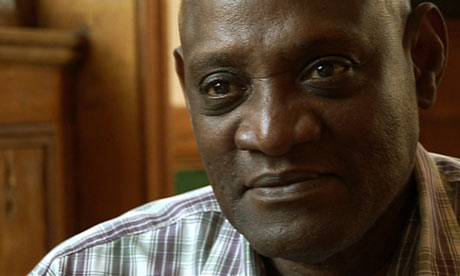
On the day of my diagnosis, in April 2007, I kept an appointment at the urology clinic at Kings College Hospital in south London. The place was well known to me. A cricketing past had yielded several injuries over the years and the accident and emergency department became my second home. Mrs Howe is a senior manager there and my last two children, accident prone as they were, also visited A&E on several occasions.
Kings College is a spit away from Brixton where I lived for more than 30 years. Not once have I entered its gates without meeting several Brixtonians who I know, patients as well as workers. This cushioned the fears that attended my visit to the clinic that day. When I entered the room I noticed, at once, that there were a disproportionate number of black Caribbean men.
I knew little about prostate cancer then. My GP had only recently declared to me that my prostate specific antigen (PSA – a protein that healthy prostates produce in small amounts) count was worryingly high. This had been discovered accidentally at another clinic in the building which had been treating me for type 2 diabetes. My consultant had reported that I was a healthy man, progressing quite nicely with an adjusted diet and a couple of tablets daily. Yet the discovery of protein in my urine prompted a blood test that revealed a PSA count of 30, suggesting that prostate cancer might be lurking in my body.
I waited for a long time in the urology clinic with other men accompanied by wives and daughters. An eerie silence gripped the room. From time to time a member of staff popped his or her head around the corner, loudly announcing a name. A summons, it seemed to me, of certain death.
"Darcus Howe," nurse Thelma shouted. I lifted my frame and walked slowly, apprehensively to the office of Gordon Muir, the consultant.
He cautioned that it was very likely that I had prostate cancer. He referred to the high PSA which normally begins at 0.1. A count of 30, he told me, meant that I probably had the disease.
Formalities over, he drew the curtain and with a gloved finger penetrated my rectum. The cancer was there.
Beads of perspiration dripped from my head and face. My entire body shook uncontrollably. Cancer to me meant death; Mrs Howe wiped my troubled brow. I sat gazing into the middle distance, my emotions shifting from one extreme to the next. I thought of my children and my grandchildren, guilt-ridden that I had imposed so much worry upon them.
Muir was matter of fact. He explained that the disease in some cases was hereditary and questioned me about my father. He and my granddad had both died from the disease.
It is not known why, but West Indian men are three times more likely to die of prostate cancer than white men here in the UK and the disease is prevalent in the Caribbean as well as Black America and on the west coast of Africa. Lives could be saved, said Muir, if a campaign could be launched for black men to be tested early.
At the time, however, this barely even registered with me. My cancer was aggressive. The malignant cells had appeared at the edge of my prostate and were about to enter my bones.
My one option that did not involve the devastation that chemotherapy brings was a Laparoscopic Prostatectomy – keyhole surgery to remove the cancer. I was operated on within weeks.
Then, after a six-month respite, the radiotherapy began. Every day for a month, except at weekends, I made the 45-minute journey to hospital. It left me exhausted and tense.
The final blow was the hormone treatment, administered every three months with a huge needle. This kills testosterone which, should the cancer return, speeds its growth. But the treatment brings extreme, menopause-like mood swings. I'm hoping that it will be all over by Christmas.
After the operation, my PSA dropped to .03, then to .02 and now it does not register. But from diagnosis to cure, I died a thousand times, consumed as I was – and still am – by demons of doubt.
Now I eat well and wisely and am consoled by the fact that my consultant pronounced in writing that "Mr Howe had made a remarkable recovery and continues to be a healthy man."
Long live the NHS. The campaign to persuade black men to get tested for prostate cancer starts here.
• What's Killing Darcus Howe? is on More 4 at 10pm on November 24.

